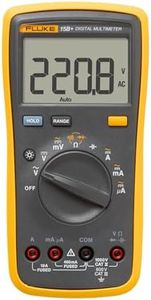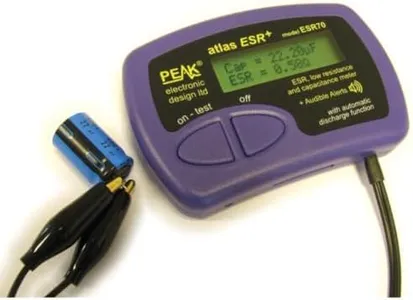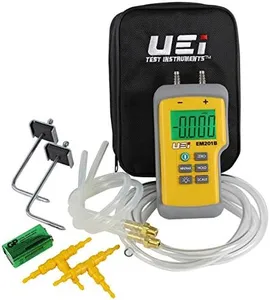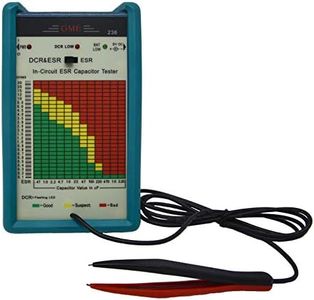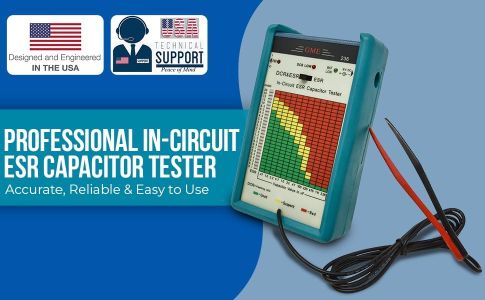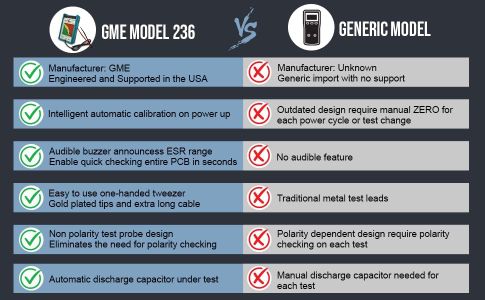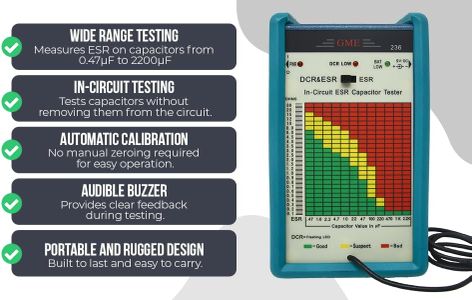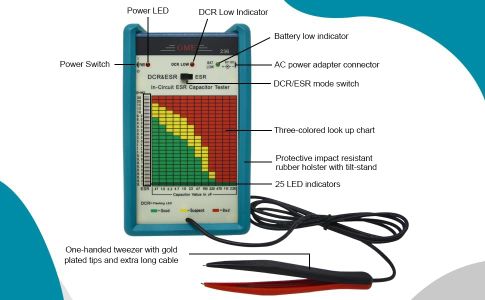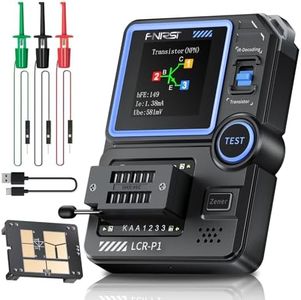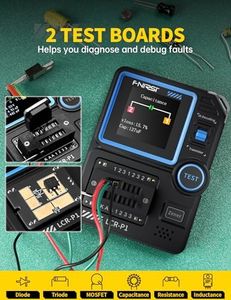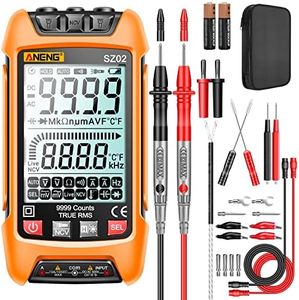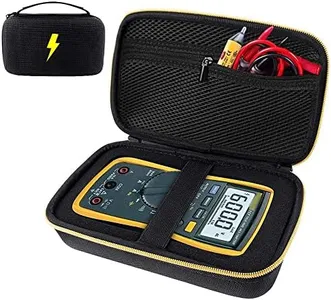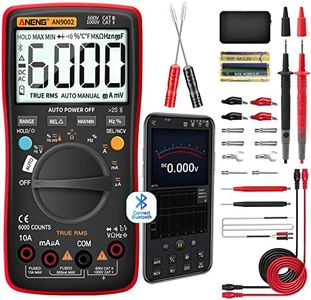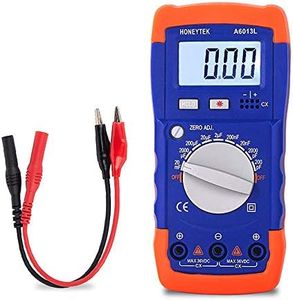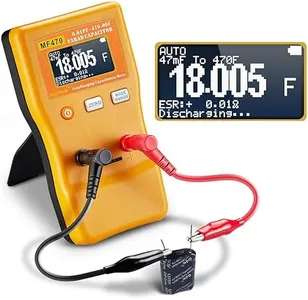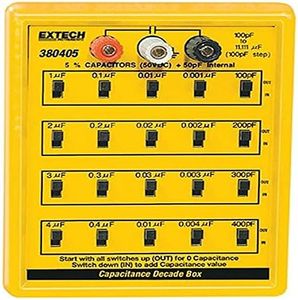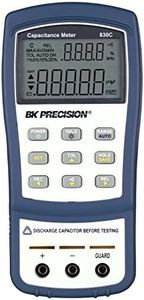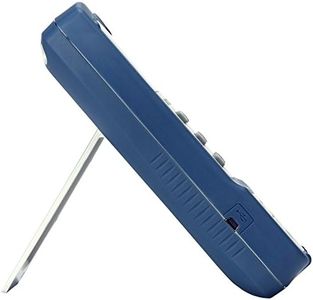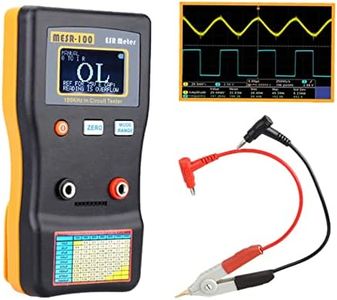10 Best Capacitor Testers 2025 in the United States
Winner
Fluke 15B+ Digital Multimeter, for Electrical Applications, Measures AC/DC Voltage and Current Measurements up to 1000V and 10A, Along with Resistance, Continuity, Diode, and Capacitance Capabilities
The Fluke 15B+ Digital Multimeter is a solid choice for those looking to perform a variety of electrical measurements, including capacitance testing. With a capacitance range that caters to many everyday uses, this multimeter stands out for its ability to measure AC/DC voltage up to 1000V and current up to 10A, making it quite versatile for both residential and commercial electrical applications.
Most important from
351 reviews
Velleman Atlas ESR70 Capacitance and ESR Meter
The Velleman Atlas ESR70 is a specialized tool designed for measuring capacitance and equivalent series resistance (ESR), making it a solid choice for hobbyists and electronics professionals alike who work with various types of capacitors. It has a capacitance range of 1uF to 22000uF, allowing users to test a wide variety of capacitors, including motor and electrolytic types, which is a significant advantage for those needing versatility in their measurements.
Most important from
210 reviews
B&K Precision 891 - Benchtop LCR Meter 300 kHz
The B&K Precision 891 Benchtop LCR Meter is a versatile and accurate tool for measuring inductance (L), capacitance (C), and resistance (R). It offers a wide capacitance range, making it suitable for a variety of testing needs in both professional and industrial settings. The high test frequency of up to 300 kHz ensures precise measurements, which is essential for detailed analysis and diagnostics.
Most important from
1 reviews
Top 10 Best Capacitor Testers 2025 in the United States
Winner
9.8 score
Fluke 15B+ Digital Multimeter, for Electrical Applications, Measures AC/DC Voltage and Current Measurements up to 1000V and 10A, Along with Resistance, Continuity, Diode, and Capacitance Capabilities
Fluke 15B+ Digital Multimeter, for Electrical Applications, Measures AC/DC Voltage and Current Measurements up to 1000V and 10A, Along with Resistance, Continuity, Diode, and Capacitance Capabilities
Chosen by 1439 this week
Velleman Atlas ESR70 Capacitance and ESR Meter
Velleman Atlas ESR70 Capacitance and ESR Meter
B&K Precision 891 - Benchtop LCR Meter 300 kHz
B&K Precision 891 - Benchtop LCR Meter 300 kHz
GME Professional in-Circuit ESR Capacitor Tester, Capacitance ESR Meter, Designed and Engineered in The USA
GME Professional in-Circuit ESR Capacitor Tester, Capacitance ESR Meter, Designed and Engineered in The USA
Extech 380405 Capacitance Substitution Box
Extech 380405 Capacitance Substitution Box
Our technology thoroughly searches through the online shopping world, reviewing hundreds of sites. We then process and analyze this information, updating in real-time to bring you the latest top-rated products. This way, you always get the best and most current options available.

